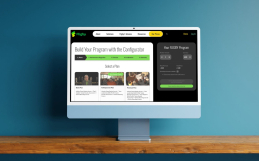Transforming Leadership Classes: Meeting the Demands of Modern Universities
The Competitive Edge in Higher Education
Universities, in response to the intensely competitive academic market, are vying for more than just prestige and rankings. They are now focusing on how effectively they can prepare students for real-life challenges. To remain competitive, universities are integrating new approaches to learning that go well beyond the effective transmission of theory. They are seeking tools and technologies that provide students with practical, experiential learning opportunities—the kind that equips them to navigate complex, real-world situations with confidence. This shift reflects a growing recognition that theoretical knowledge alone is insufficient in preparing students for the dynamic challenges of modern leadership and teamwork.
The emergence of Generation Z is a significant factor driving this shift. This generation, with its increasing expectations for innovation in educational models, is reshaping the higher education landscape. They value hands-on, practical insights from their tutors, seeking experiences that prepare them for the complexities of the modern workforce. As a result, universities are integrating new approaches to learning that go well beyond the effective transmission of theory. They are seeking tools and technologies that provide students with practical, experiential learning opportunities—the kind that equips them to navigate complex, real-world situations with confidence. This shift reflects a growing recognition that theoretical knowledge alone is insufficient in preparing students for the dynamic challenges of modern leadership and teamwork.
What Universities Are Really Looking For
Universities, particularly those offering leadership courses, are increasingly seeking tools that go beyond theoretical knowledge. They aim to provide experiential learning opportunities that allow students to immerse themselves in real-world scenarios. This approach not only helps students understand the mechanics of leadership but also the emotional and social dynamics that accompany it, promising a more comprehensive and impactful learning experience.
Key academic expectations include:
- Experiential Learning – Universities want students to experience the consequences of their decisions in a safe, simulated environment. This secure setting ensures that students can understand the real impact of leadership choices on team dynamics and individual emotions without the fear of real-world repercussions.
- Emotional Intelligence Development – Leadership is not just about making decisions, but also about understanding how those decisions affect team members. Universities are seeking tools that enable students to step into the shoes of a leader and experience the ripple effects of their actions.
- Safe Space for Failure – A critical aspect of experiential learning is the ability to fail without real-world consequences. This allows students to learn from their mistakes and refine their leadership approach.
- Understanding Team Dynamics – Leadership simulations should provide valuable insights into how social networks and team dynamics function, particularly when leadership is faltering. This understanding is crucial for effective leadership and should be a key focus of leadership courses.
Limitations of Traditional Simulation Tools
Many universities have traditionally used simulation tools to bolster their leadership and business education programs. While these tools excel in imparting technical and strategic skills, they often lag in key areas that are now crucial for modern leadership education, such as emotional intelligence, team dynamics, and interpersonal challenges.
One significant limitation is their overemphasis on technical skills at the expense of emotional intelligence. Traditional simulations often emphasize data analytics, decision-making, and corporate strategies while neglecting the crucial aspects of emotional intelligence, team dynamics, and interpersonal challenges that leaders encounter in real-world situations. This narrow focus means that students may not develop the soft skills necessary for effective leadership.
Additionally, many of these simulations offer limited experiential learning opportunities. They are often linear and scenario-based, which restricts the flexibility needed for students to explore the consequences of their decisions in dynamic, evolving environments. This lack of immersion can hinder students’ ability to grasp the complexities of leadership fully.
Another drawback is that traditional tools frequently present generic, corporate-centric scenarios. While valuable, these scenarios may not resonate with students from diverse backgrounds or those pursuing careers outside of conventional business roles. This lack of relevance can diminish the overall learning experience. Moreover, customization challenges can arise with these platforms. Although some allow for tailored simulations, the process can be complex and resource-intensive, making it less accessible for universities looking for impactful, ready-to-use tools.
Lastly, educators have reported issues with engagement and accessibility. Technical difficulties and challenges in capturing students can detract from the learning experience, ultimately reducing the effectiveness of the simulation. These barriers underscore the need for alternatives that offer a more immersive and relevant leadership education experience.
Why Universities Are Turning to Solutions Like FLIGBY
In response to these limitations, universities are exploring innovative alternatives that offer a more holistic and immersive approach to leadership education. Tools like FLIGBY, with its unique approach, stand out as a solution that addresses the gaps in traditional simulation tools and aligns with the evolving needs of academic institutions. Here’s why:
- Focus on Emotional and Social Dynamics – Unlike traditional tools, soft-skill simulations emphasize the emotional and interpersonal aspects of leadership, allowing students to experience the real-world impact of their decisions on team morale, motivation, and dynamics. This focus on emotional intelligence is critical for preparing students to lead effectively in diverse and complex environments.
- Immersive Experiential Learning – Solutions like FLIGBY offer a non-linear, interactive experience where students assume the role of a leader managing a team with unique personalities and challenges. This dynamic environment enables deeper engagement and a more nuanced understanding of leadership challenges.
- Alignment with Academic Goals – FLIGBY is a good example of a robust application that is specifically designed to meet the needs of higher education, offering a scientifically grounded approach based on positive psychology. This ensures that the simulation is not only engaging but also academically rigorous and aligned with the learning objectives of leadership programs, providing a strong foundation for students’ future leadership roles.
- Safe Space for Failure and Growth – By providing a risk-free environment, FLIGBY allows students to experiment with different leadership styles, learn from their mistakes, and refine their approach. This hands-on learning experience, coupled with the safety net of FLIGBY, is invaluable for developing self-awareness and adaptability, instilling confidence in students’ ability to learn and grow.
- Engagement and Gamification – The gamified nature of FLIGBY keeps students engaged while teaching them critical leadership skills. This makes it particularly appealing to Generation Z, who value interactive and innovative learning experiences.
Universities are undergoing a significant shift in their approach to leadership education. They are moving away from traditional simulations that focus on theoretical learning and are now embracing tools that provide genuine experiential learning. These tools enable students not only to understand leadership challenges but also to experience them, comprehend the emotional and social dynamics of their decisions, and develop in a secure, supportive environment.
Tools like FLIGBY, with their unique blend of scientific rigor, emotional depth, and immersive gameplay, play a crucial role in creating a secure, supportive learning environment. They offer a transformative learning experience that prepares students for the complexities of real-world leadership, fostering their growth and development.





